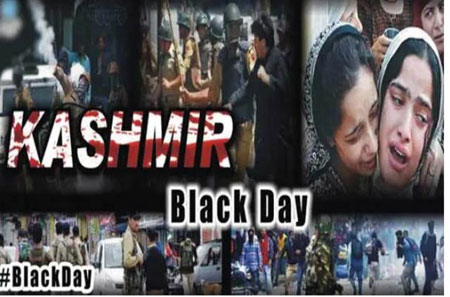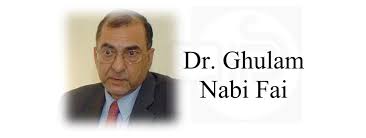

October 27th is remembered as Black Day by the people of Jammu and Kashmir on both sides of Line of Control and beyond, marking the onset of one of the most prolonged conflicts in modern history. On this day in 1947, Indian forces entered Jammu and Kashmir, a move that was illegal and without the consent of the Kashmiri people. This event not only set the stage for decades of military occupation but also initiated a period of severe human rights violations, including widespread violence, enforced disappearances and cultural erasure. For the people of Kashmir, Black Day symbolizes their continued struggle for self-determination and justice, as they endure the harsh realities of one of the most militarized regions in the world.
The right to self-determination, a fundamental principle in international law, is at the heart of this conflict. Human dignity and the collective will of the Kashmiri people have been consistently violated. Over 96,000 Kashmiris have been killed by Indian troops in the ongoing conflict and more than 8,000 have gone missing. Among the victims are over 23,000 women, many of them known as “half-widows,” whose husbands have disappeared, presumed either killed or held indefinitely by Indian forces. Despite these horrifying statistics, the world has largely remained silent, allowing India to continue its military occupation, which violates international norms and fundamental human rights.
India has framed the Kashmir conflict as an internal security issue, deliberately ignoring the promises it made to the people of Kashmir and the international community. The United Nations passed Resolutions 47, 91 and 122, all calling for a plebiscite to allow the people of Kashmir to determine their own future. Yet, India has repeatedly refused to honor these resolutions, violating the principle of self-determination, a cornerstone of modern international law. The UN’s inability to enforce its own charters has exposed a critical weakness in global governance, where powerful states like India disregard international mandates with little consequence.
In August 2019, India dealt another blow to the dreams of Kashmiris when it abrogated Article 370 of its constitution, stripping occupied Jammu and Kashmir of its special autonomous status. This move further solidified India’s control over the region, in blatant violation of international law and the original agreement that allowed Kashmiris the right to self-determination. The abrogation led to an unprecedented lockdown—politicians were arrested, communication networks were severed and the region was turned into a virtual prison. Kashmiris had no say in this decision, as their autonomy was unilaterally erased by the Indian government.
This strategy is driven by the ideology of Hindutva, which seeks to establish India as a Hindu-majority nation, marginalizing its Muslim-majority regions, particularly Kashmir. This view is aggressively promoted by the ruling Bharatiya Janata Party (BJP), which has used it to consolidate nationalist support within India while isolating and oppressing the Kashmiri population. India continues to justify its occupation by framing it as a fight against terrorism, though the reality on the ground tells a different story—one of repression, fear and resistance.
Thousands of families in Kashmir have been torn apart, homes destroyed and lives shattered by the ongoing conflict. The constant violence, especially against young people, has led to widespread mental health crises, including PTSD, depression and anxiety. Yet, the global community has remained indifferent to the plight of Kashmiris.
While India maintains a strong international presence, Pakistan continues to advocate for the human rights and self-determination of Kashmiris, as outlined in UN resolutions and international law. Despite its own internal challenges, Pakistan remains steadfast in calling for a peaceful resolution to the Kashmir conflict.
However, the international response has been disappointing. The Organization of Islamic Cooperation (OIC), despite representing over 50 Muslim-majority nations, has done little beyond issuing statements condemning India’s actions. This inaction has left Kashmiris feeling abandoned, not only by the Muslim world but by the global community at large. The United Nations, despite passing numerous resolutions, has failed to hold India accountable for its violations. This reflects a broader trend where powerful nations prioritize sovereignty and national interests over adherence to international norms and human rights.
From a realist perspective, the Kashmir conflict is fueled by state interests and power dynamics. India’s pursuit of strategic control over Kashmir outweighs international obligations, while Pakistan seeks to support Kashmiris’ right to self-determination as part of its national policy. On the other hand, a constructivist approach highlights the ideological motivations behind India’s actions, with the BJP’s Hindutva ideology playing a significant role in shaping the country’s aggressive policies toward Kashmir.
The 27th of October will forever stand as a symbol of the Kashmiri people’s struggle for self-determination and justice. As the international community continues to turn a blind eye, it is up to individuals, civil society and nations committed to human rights to ensure that the voices of the oppressed in Kashmir are heard and that their right to determine their own future is upheld.
The writer is a student of International Relations at the International Islamic University, Islamabad and is currently serving as an intern at the Kashmir Institute of International Relations.








